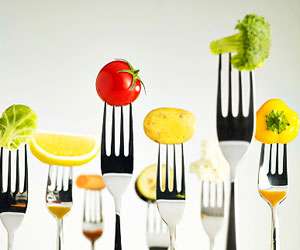Brain activity provides evidence for internal 'calorie counter'

As you glance over a menu or peruse the shelves in a supermarket, you may be thinking about how each food will taste and whether it's nutritious, or you may be trying to decide what you're in the mood for. A new neuroimaging study suggests that while you're thinking all these things, an internal calorie counter of sorts is also evaluating each food based on its caloric density.
The findings are published in Psychological Science, a journal of the Association for Psychological Science.
"Earlier studies found that children and adults tend to choose high-calorie food," says study author Alain Dagher, neurologist at the Montreal Neurological Institute and Hospital. "The easy availability and low cost of high-calorie food has been blamed for the rise in obesity. Their consumption is largely governed by the anticipated effects of these foods, which are likely learned through experience."
"Our study sought to determine how people's awareness of caloric content influenced the brain areas known to be implicated in evaluating food options," says Dagher. "We found that brain activity tracked the true caloric content of foods."
For the study, 29 healthy participants were asked to examine pictures of 50 familiar foods. The participants rated how much they liked each food (on a scale from 1 to 20) and were asked to estimate the calorie content of each food.
Surprisingly, they were poor at accurately judging the number of calories in the various foods, and yet, the amount participants were willing to bid on the food in a simulated auction matched up with the foods that actually had higher caloric content.
Results of functional brain scans acquired while participants looked at the food images showed that activity in the ventromedial prefrontal cortex, an area known to encode the value of stimuli and predict immediate consumption, was also correlated with the foods' true caloric content.
Participants' explicit ratings of how much they liked a food, on the other hand, were associated with activity in the insula, an area of the brain that has been linked to processing the sensory properties of food.
According to Dagher, understanding the reasons for people's food choices could help to control the factors that lead to obesity, a condition that is linked to many health problems, including high blood pressure, heart disease, and Type 2 diabetes.
More information: "Behavioral and Neural Valuation of Foods Is Driven by Implicit Knowledge of Caloric Content" pss.sagepub.com/content/early/ … 97614552081.abstract

















